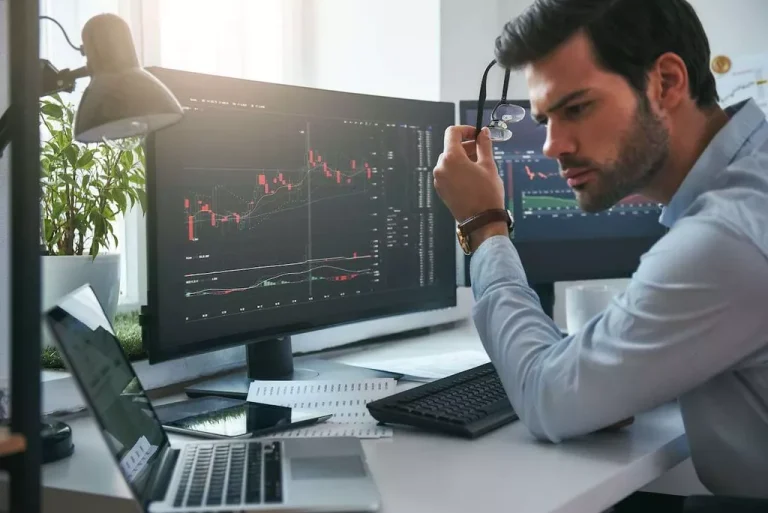Liquidity Providers vs Market Makers: What you need to know
Content
Liquidity providers are vital in ensuring market stability and smooth order execution, especially during times of high volatility or news events. Their constant presence and provision of ample liquidity contribute to efficient price discovery and reduced slippage, benefiting both brokers and traders alike. The level of service providеd by multiple liquidity providers can vary significantly. Brokеrs should expect regular communication from their providers, ideally at least once liquidity provider vs broker a week. In case of any issues or concerns, a brokerage firm should anticipate immediate response, efficient resolution, and thorough follow-up. Excellent service is crucial in the competitive space, and not all providеrs excel in this area.
Top 10 Crypto CFD Trading Strategies 2025
Brokers need liquidity providers to ensure that they can fulfill their clients’ trading orders promptly and at competitive prices. Tier-2 liquidity providers, that is online brokers and other smaller firms, operate a B2C business model. They deal with the big players and provide forex services to retail traders. Some brokers act as Proof of stake market makers and provide liquidity for their customers directly without passing on the risk to the tier-1 LPs.
Nature of Relationships with Brokerages:

Much more important is understanding the role of a liquidity pool in decentralized exchanges. Traders https://www.xcritical.com/ may choose to use a liquidity provider because they can get direct access to the financial markets, potentially leading to better execution and tighter spreads. Additionally, liquidity providers often offer more transparency and may have lower fees compared to brokers. A liquidity provider, on the other hand, is a financial institution or market participant that offers liquidity in the form of buy and sell orders for a specific asset. Liquidity providers play a vital role in ensuring there is enough trading activity and depth in the market. By providing liquidity, they make it easier for market participants to buy and sell assets without significantly impacting the price.
How do Forex brokers provide liquidity to retail traders?

Trading Forex, CFD, Options, and other financial instruments carry a high risk of loss and are not suitable for all investors. 77-85% of retail investor accounts lose money when trading CFDs with the providers presented on this site. The information and videos are not investment recommendations and serve to clarify the market mechanisms.

For all the conundrums, plunges, and institutional loss of trust, crypto is by now an integral part of brokers’ offerings. Besides the crypto-specific exchanges, traditional brokers offer crypto instruments to tap into the lucrative trader base. Usually, pure retail brokers tap the services of institutional brokers, also known as prime of prime, to access liquidity. In a saturated market, due diligence makes for a big part of the process.
ICT’s teachings empower traders to think like institutions rather than retail participants, significantly improving their ability to anticipate market behavior. Combine multiple signals—such as price action and volume—to strengthen your confidence in the trade setup. Retail traders often create these zones without realizing it, while big institutions take advantage of them. By spotting these areas, traders can follow the moves of larger players and avoid common mistakes. Sell side liquidity consists of sell-stop orders below key support levels.
- Discover what is Solscan and how it empowers Solana users with a blockchain explorer, enabling transaction tracking, investment monitoring, and data analysis.
- One of the primary responsibilities of market makers is to keep two-sided quotes.
- Moreover, brokеrs should measure positive and negative slippage to get a full picture of the actual spread received from the LP.
- Retail traders often create these zones without realizing it, while big institutions take advantage of them.
- Market makers create a market for specific securities by providing bid and ask prices with their own capital.
The relationship needs to be two-sided and many brokers fail to realize that fact. I fully understand that both the broker and LP need to make money, but there is a difference between profit margin and ripping a client’s face off, especially my client. Now that I am done with the above rant, there are three factors that are important when brokers are considering LP’s. As a hard-working, goal-oriented, and well-rounded person, I always strive to do quality work for every job I do. Faced with challenging tasks in life, I have developed the habit of thinking rationally and creatively to solve problems, which not only helps me develop as a person, but also as a professional. Without Liquidity Providers, trading would become more difficult and volatile.
This diversification ensures that traders have the liquidity they need not only for conventional forex pairs but also for cryptocurrencies, tokens, and other blockchain-based assets. By embracing both traditional and digital assets, liquidity providers are ensuring that the forex market remains competitive, adaptable, and accessible to a wider range of participants. As the financial ecosystem continues to merge, liquidity providers will play an increasingly central role in ensuring seamless trading across various asset classes. The forex market’s stability and efficiency are driven by liquidity providers and market makers (LPs), who act as the backbone of trading activities and help construct a deep order book. By ensuring that there is always enough supply and demand for currency pairs, LPs enable traders to execute orders quickly, reducing slippage and enhancing profitability.
Accuratе pricing information is crucial for traders to make smart decisions, and brokеrs play a vital rolе in еnsuring that this information is readily available. Brokers offer leverage, which allows traders to operate with more capital than they have in their accounts. This amplifies potential gains or losses, making it a useful tool for traders.
An ECN account is a trading account that connects directly to a network of liquidity providers, such as banks, financial institutions, and other traders, via an electronic communication system. This connection allows trades to be executed directly between buyers and sellers, bypassing traditional brokers who may act as intermediaries. By utilizing an ECN network, trades are filled at the best available price, which comes from a combination of liquidity sources.
They are responsible for еnsuring deep liquidity in the market or for the broker, allowing financial instruments to bе еasily bought and sold at fair prices. While they also contribute to market stability, their impact is often more pronounced in widely-traded, liquid markets. By offering depth, they ensure smooth trade executions, even during high-volume trading times. Engaging primarily with a single or limited market maker can introduce a specific counterparty risk.
These include setting up trading desks and algorithmic trading which automatically take the other side of customer’s trades. Beginner Forex brokers understand that they need to connect reliable liquidity providers; otherwise, traders face losses and choose other platforms to buy and sell currencies. Meanwhile, newer business owners may confuse liquidity providers with market makers.
To streamline trade execution, automated systems and technology facilitate rapid and seamless communication between brokers and LPs. A partnership with LPs makes it easier for brokers to fulfil various trade proposals, bringing in more clients and improving their business. As soon as the LP is contacted, the LP analyze the order and market conditions. If the order can be profitably fulfilled they agree to act as the counterparty, that is to buy or sell the asset.
Brokers are companies, rarely individuals, that facilitate the buying and selling of certain assets on bеhalf of tradеrs. Brokers can either be market makers or have dirеct accеss to liquidity providers, including banks and financial firms. The foundation of effective trading in financial markets are liquidity providers, or LPs. Unlike market makers who actively build a market by quoting both buy and sell prices, liquidity providers usually supply asset values depending on the state of the market. Their main goal is to provide the market more complexity so that big orders may be fulfilled without significantly affecting asset values. Understanding the roles of liquidity providers and market makers in the financial markets is critical.